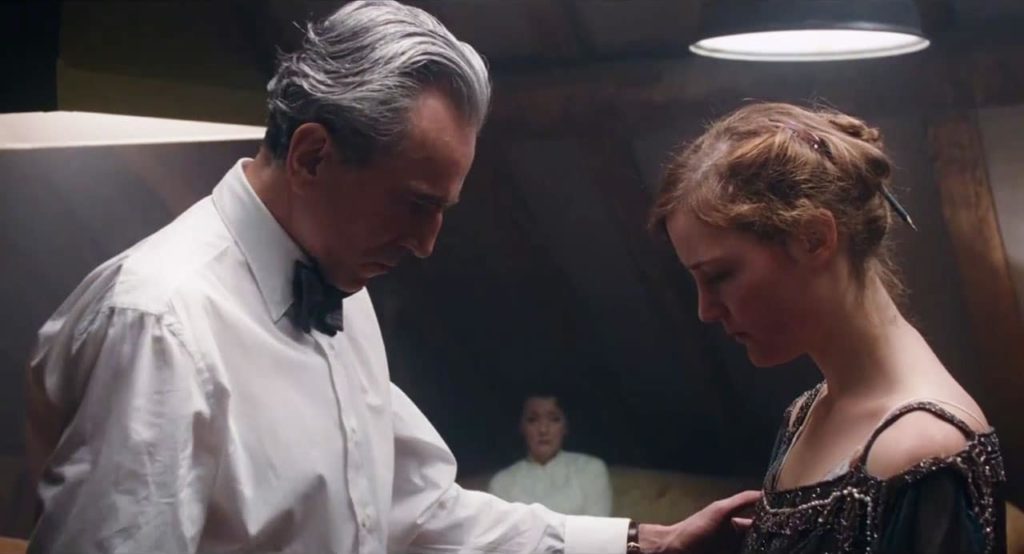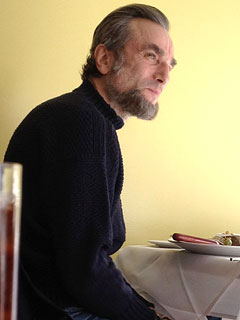
Phantom Thread, starring Daniel Day-Lewis, is Paul Thomas Anderson’s rapturously beautiful and unexpectedly witty story of a strong-willed man and two equally strong-willed women.
Reynolds (Day-Lewis) is a dressmaker to the rich and famous in 1950s London. His unmarried sister Cyril (Lesley Manvilla) runs their home and takes care of business affairs. On a foray to a provincial resort cafe, Reynolds is taken by the breakfast waitress Alma (Vivky Krieps), and brings her back to London with him. Barely tolerated at first by Cyril, Alma becomes Reynold’s muse – until she isn’t.
In the movie’s first two minutes, Anderson establishes Alma as vibrant, Reynolds as fastidious and Cyril as commanding. Phantom Thread is about the three characters’ relative power in the interpersonal relationships. Alma starts at the very bottom, but changes the power balance in a quite novel way.
Daniel Day-Lewis creates a wonderfully watchable character in Reynolds. He uses his creativity as an excuse for license to get his way in every regard. Cyril indulges Reynolds and keeps him in a cocoon. He says that a distraction at breakfast can ruin his productivity for an entire day. Anderson heightens the volume of breakfast noises to show how grating the sound of buttering toast is to Reynolds. It’s very funny.
Reynolds is so obsessive that, when he brings a date back to his place, he DRESSES her instead of undressing her.
The formidable Cyril is as chilly as February in the Yukon. She is a woman of very few words, but her cutting observations and acid reactions are very, very funny. The great actress Lesley Manville gets the most out of very brief lines – and, often, a mere silent look. Manville’s performance is reason enough to see Phantom Thread.
The Luxembourgian actress Krieps (never thought I would write the adjective Luxembourgian) has received much critical buzz. She is adequate as Alma, but I wouldn’t cross the street to see her next movie.
Reynolds adorns women in impressive dresses throughout Phantom Thread – the costume design is stellar. Anderson’s frequent collaborator, Johnny Greenwood of Radiohead, supplies a beautiful score. The total effect of visual imagery and music is opulent, so opulent as to remind me of Max Ophuls’ The Earrings of Madame de… and Luchino Visconti’s The Leopard.
I saw Phantom Thread at a special SFFILM screening (70mm print!) with Paul Thomas Anderson in attendance. Anderson said that he set out to make a gothic romance like Hitchcock’s Rebecca. The kernel of the story was a strong-willed man who becomes nicer when laid low by illness – and his wife prefers him that way. Anderson said that he was further inspired by the period British films The Passionate Friends and I Know Where I’m Going.
In a very nice touch, Anderson dedicated Phantom Thread to his late friend, the director Jonathan Demme.
Phantom Thread is a beautiful and witty film – one of the best of 2018


